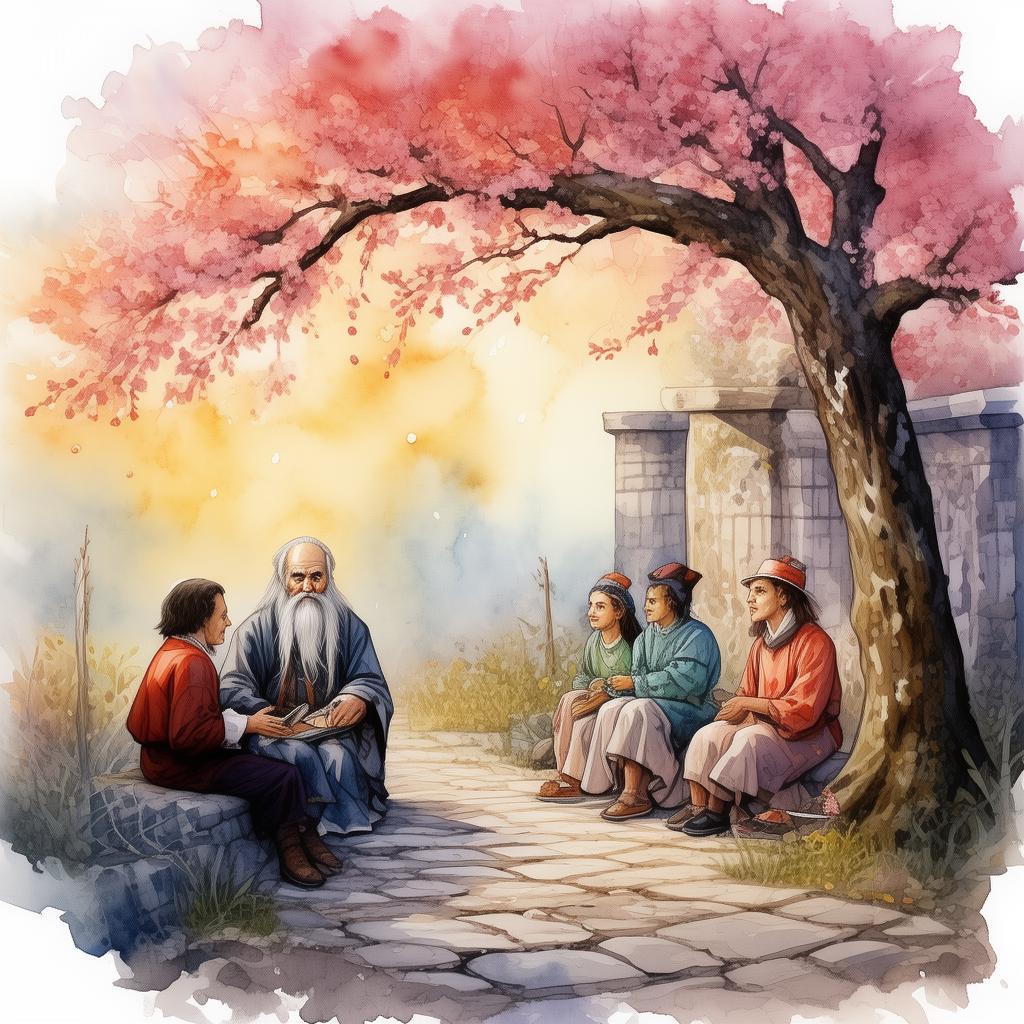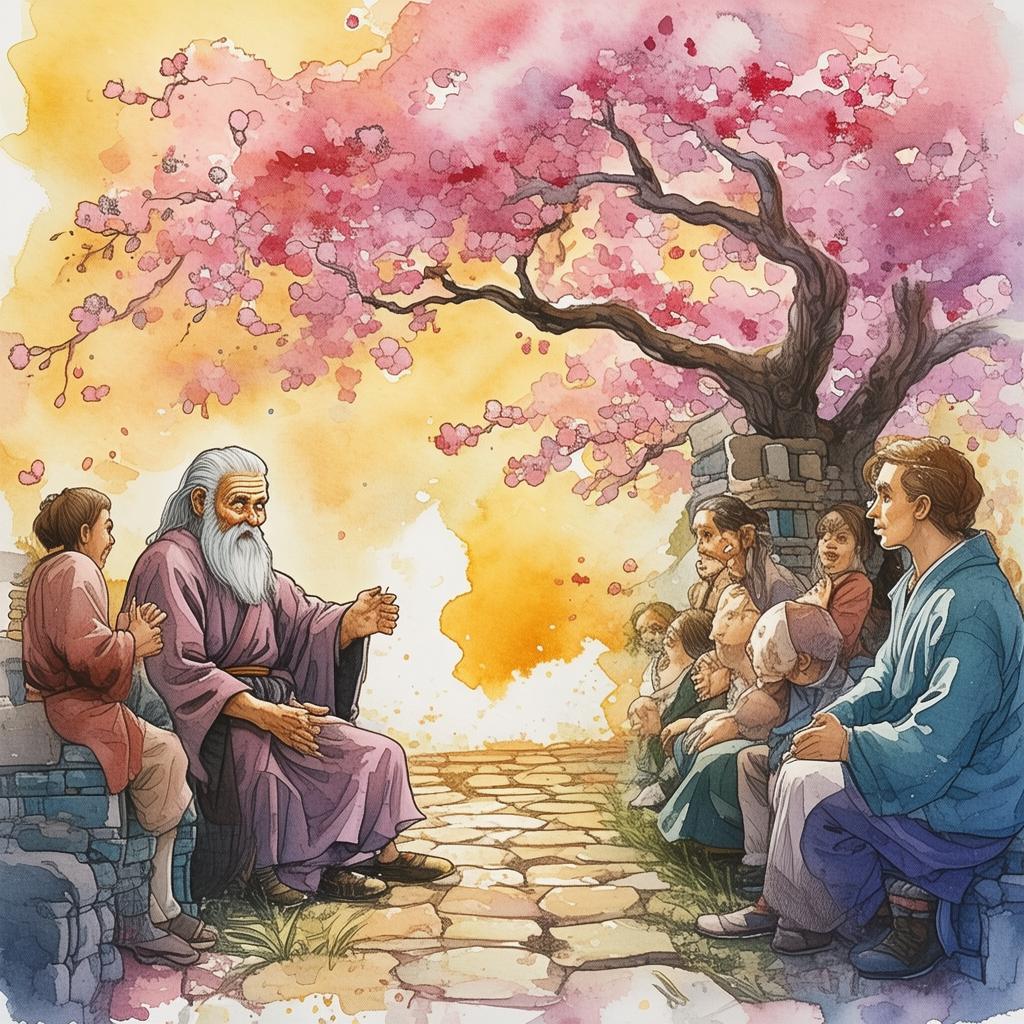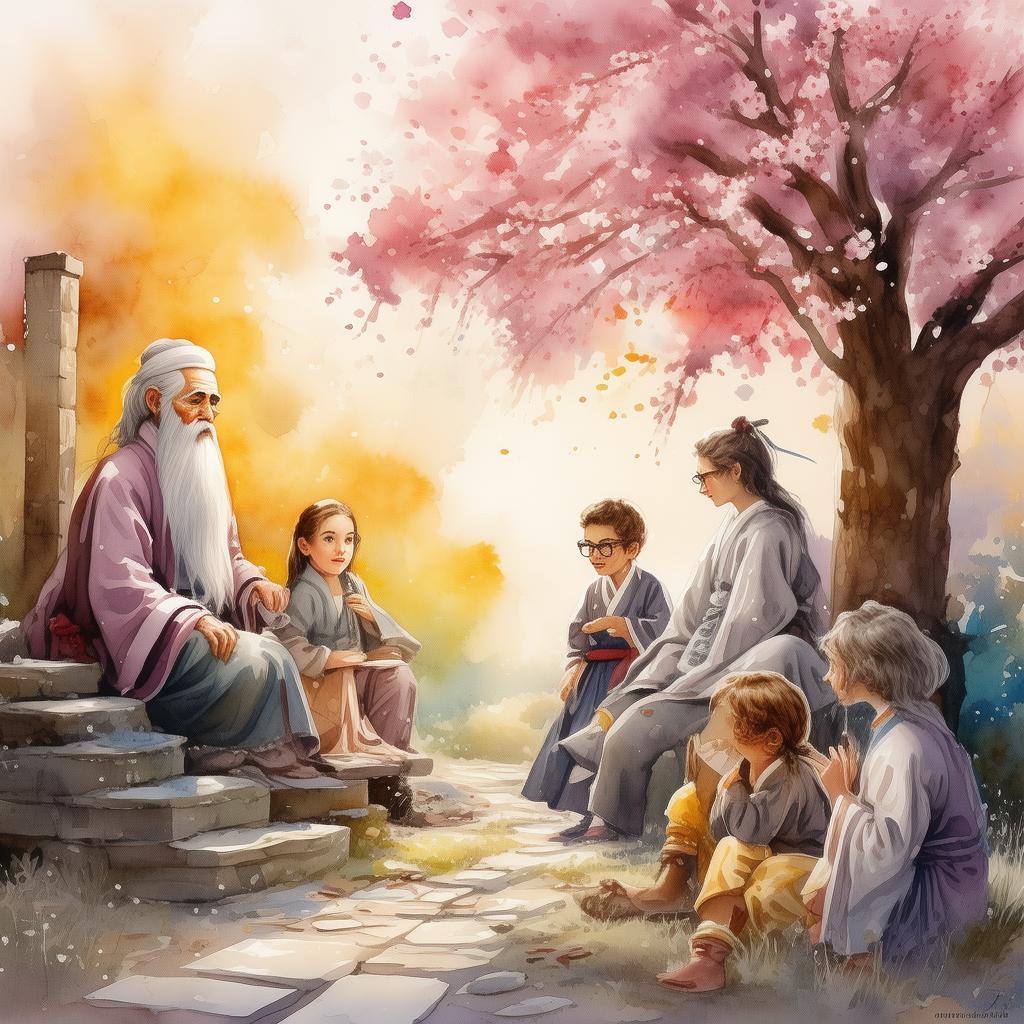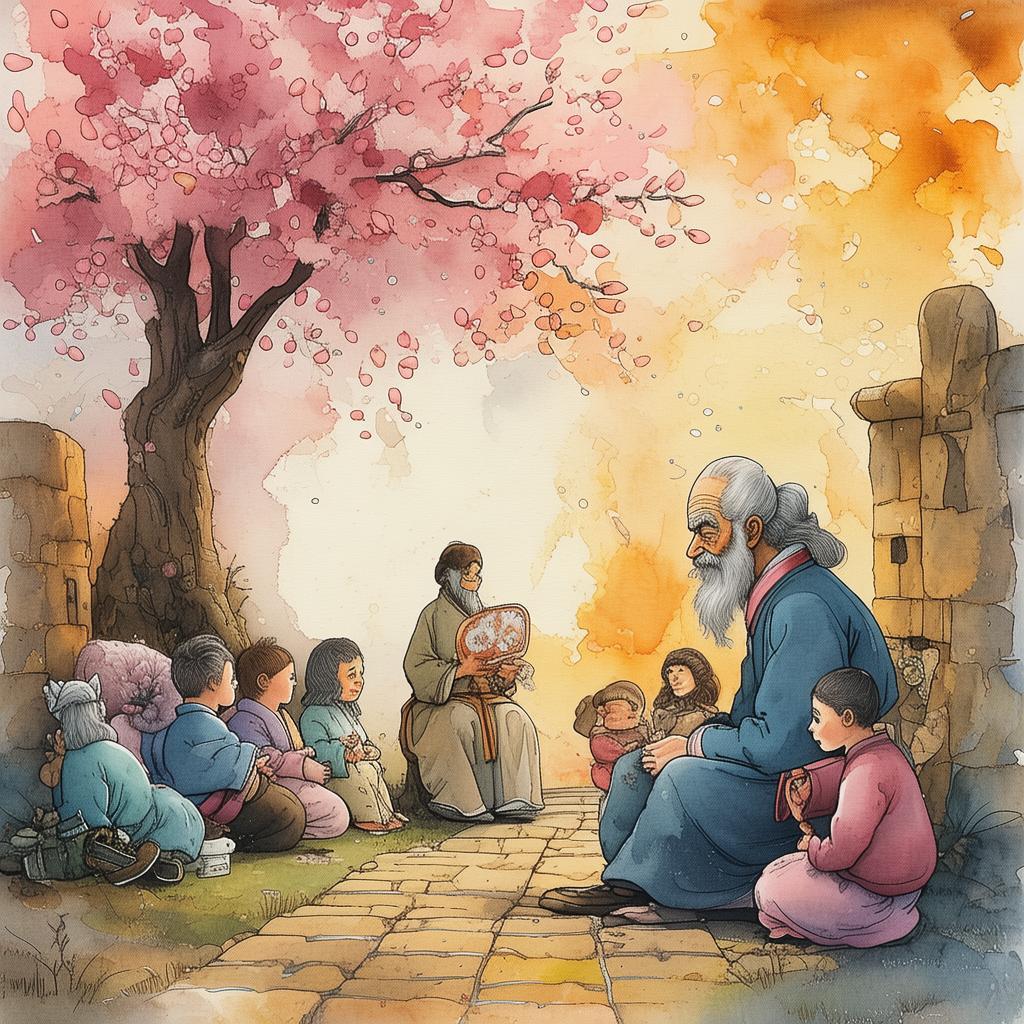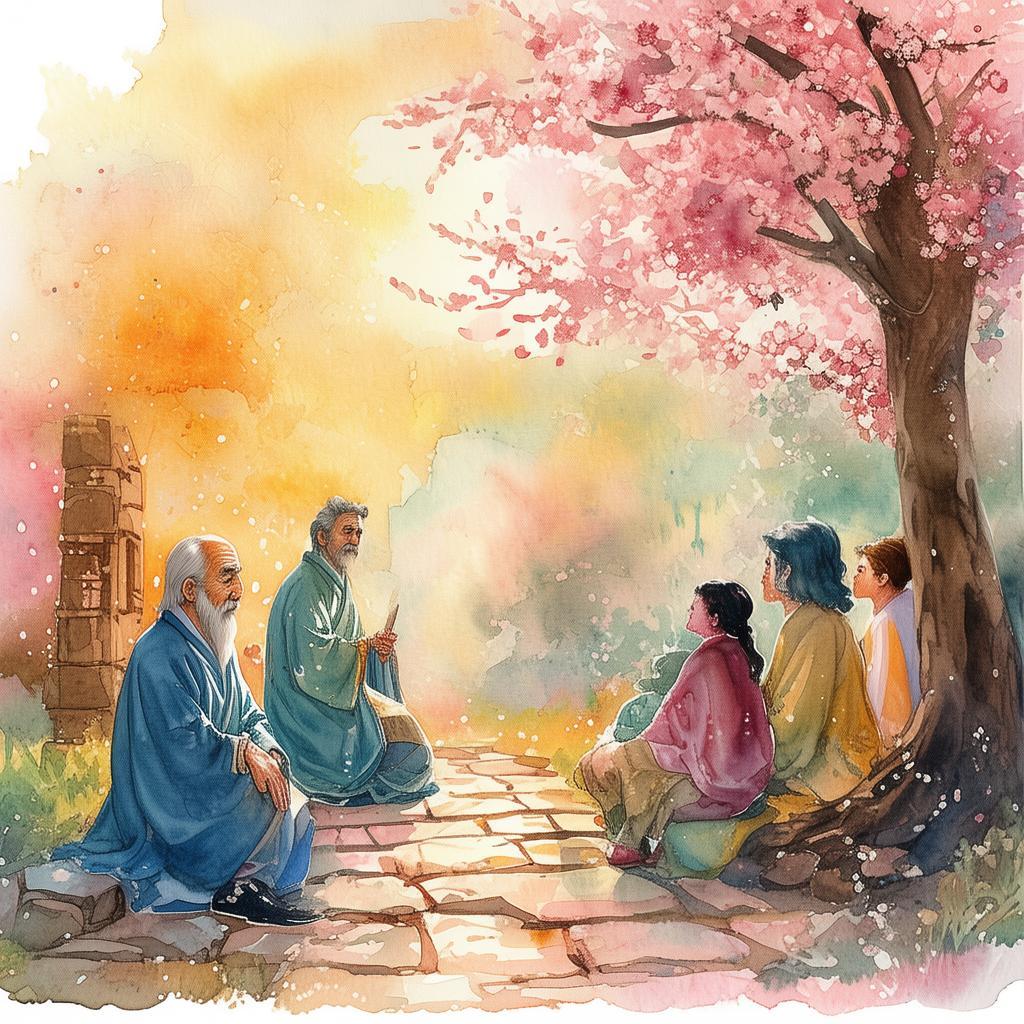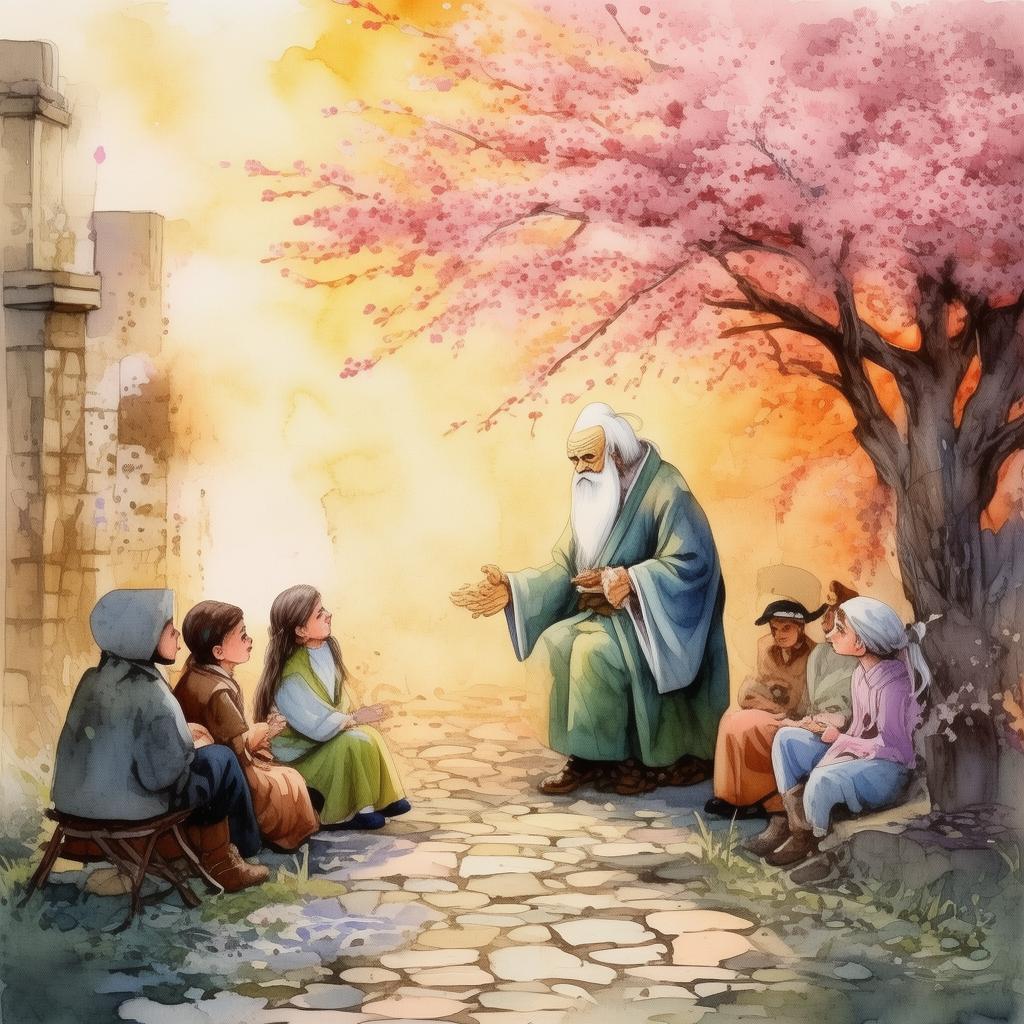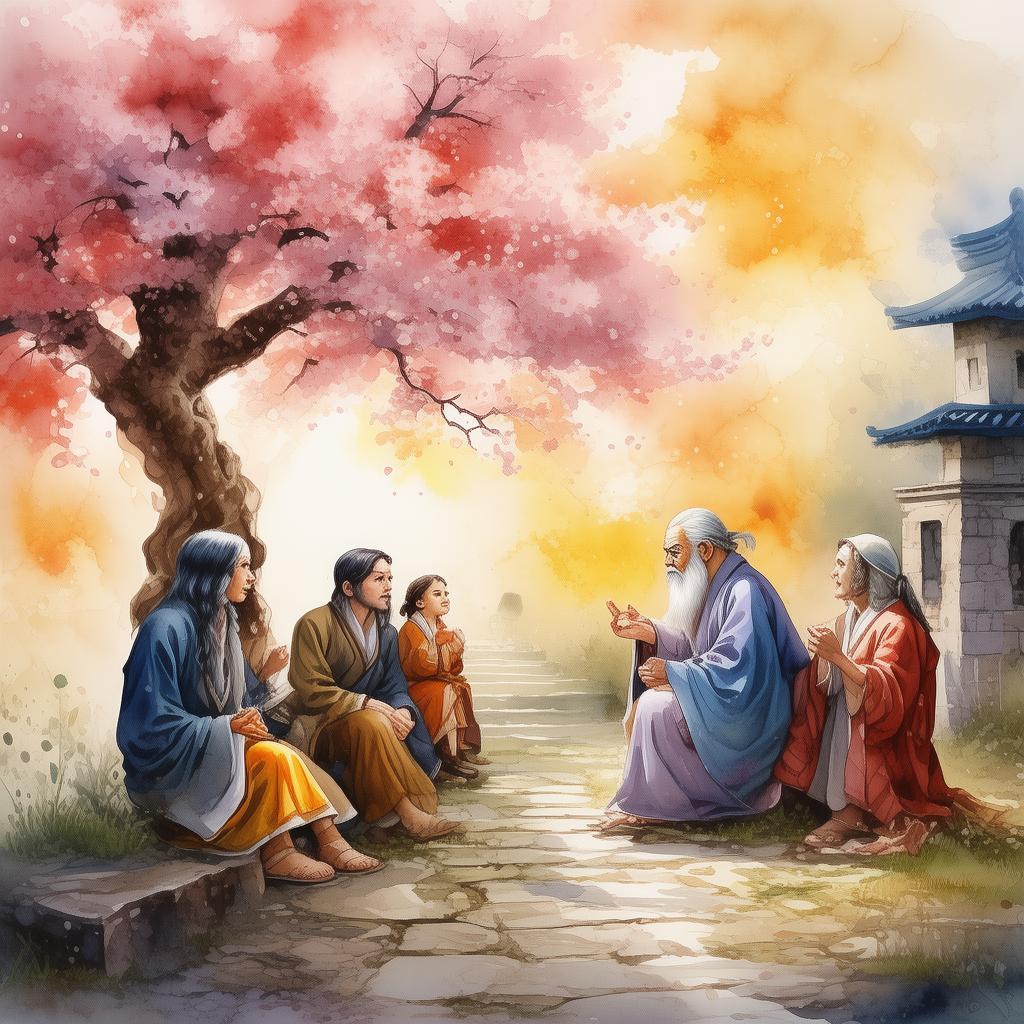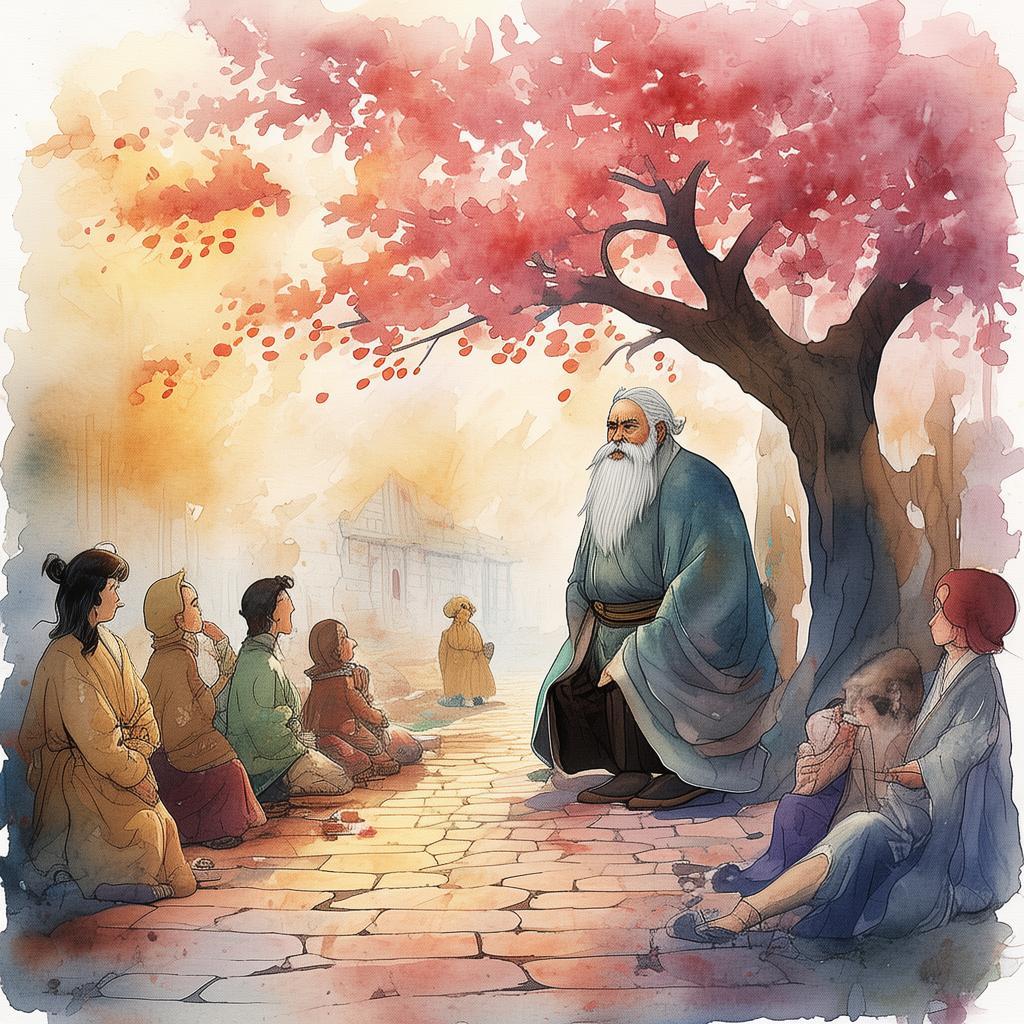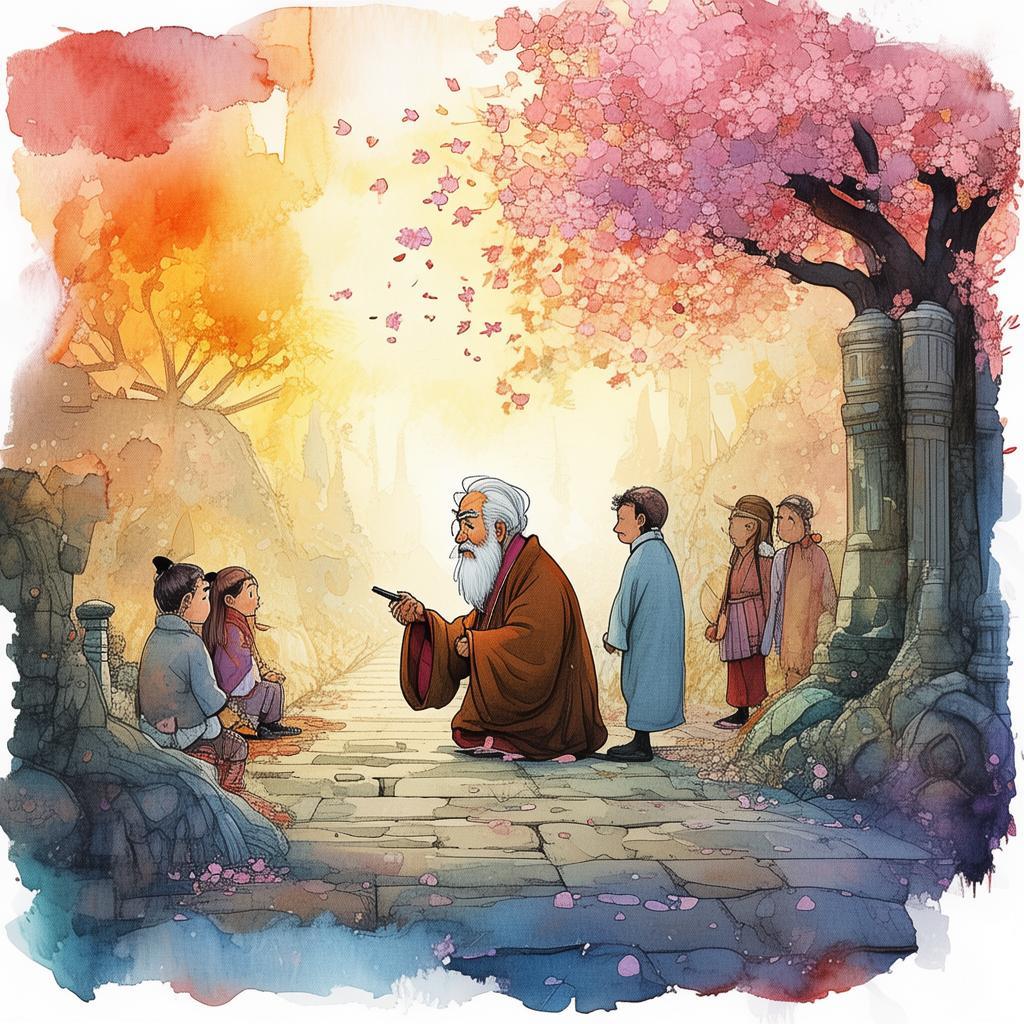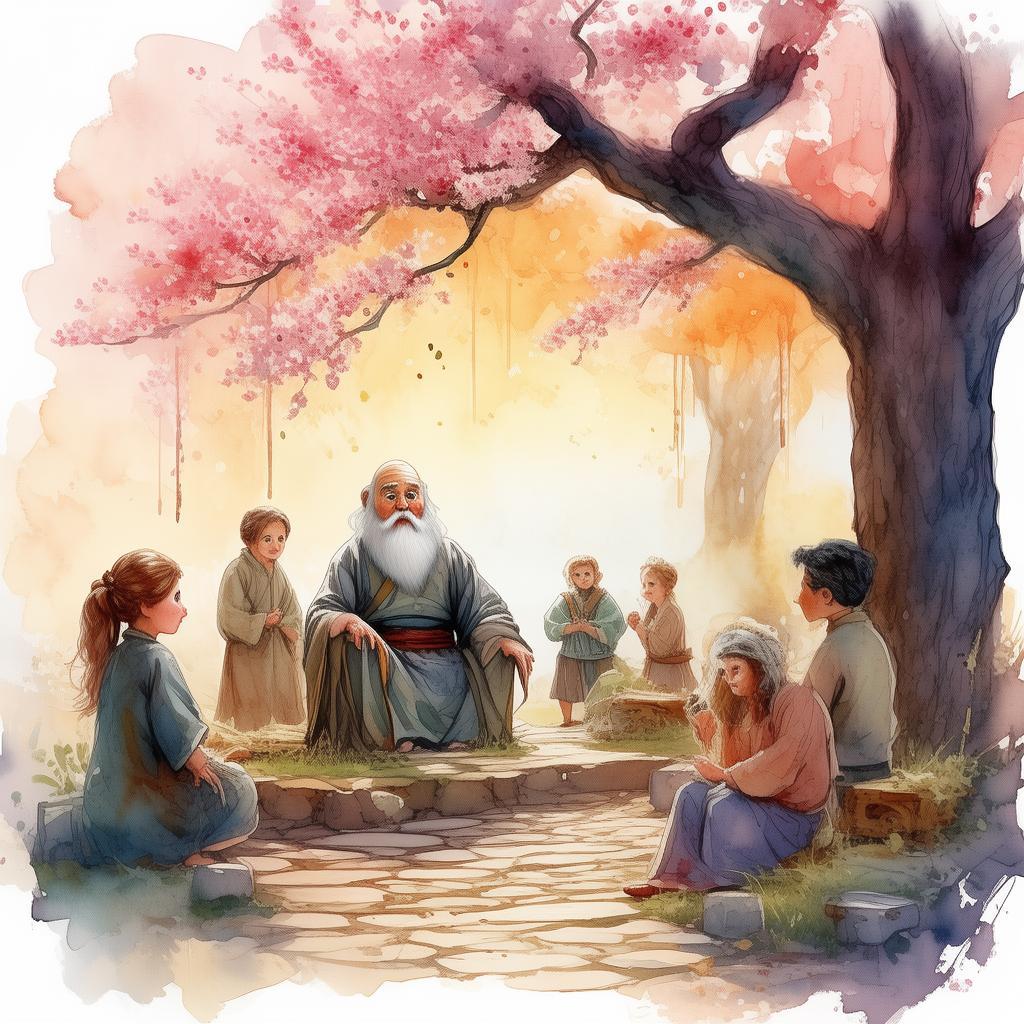The Moon's Melody: A Mid-Autumn's Lullaby
In the ancient town of Liangshan, nestled between rolling hills and a serene lake, there was a young poet named Ming. Ming was known for his lyrical verses, which seemed to capture the very essence of the moon's gentle glow. It was the eve of the Mid-Autumn Festival, a time when the full moon was at its brightest, and the entire village gathered to celebrate the harvest and the lunar deities.
As the sun dipped below the horizon, casting a golden hue over the landscape, Ming took to the rooftop of his family's humble abode. He held a parchment in his hand, its edges slightly frayed, and began to sing a lullaby to the moon. His voice was soft, almost a whisper, yet it carried across the village, reaching every ear.
The lullaby, "The Moon's Melody," was a composition of his own, a blend of traditional melodies and his own poetic touch. It spoke of the moon's beauty, its eternal cycle, and the love that it symbolized. The villagers, enchanted by the melody, gathered around Ming, their eyes reflecting the moon's light as they listened.
Among the crowd was a young woman named Ying, whose heart was as pure as the moon itself. Ying was the daughter of the village elder, a wise and respected figure. She was also known for her beauty and her love of poetry. When she heard Ming's lullaby, her heart swelled with emotion, and she found herself drawn to him.
Ming and Ying began to meet in secret, their love blossoming under the watchful eye of the moon. They shared their dreams and their fears, their laughter and their tears, all under the silent guardianship of the celestial orb. But as the days passed, Ming's lullaby took on a new meaning; it became a symbol of their forbidden love.
The elder, upon discovering the relationship between Ming and Ying, was filled with despair. He knew that their love was as doomed as the moon's waning cycle. In a fit of anger and despair, he decided to take matters into his own hands. He convinced the village to vote on Ming and Ying's fate, knowing that the villagers, who revered him, would side with him.
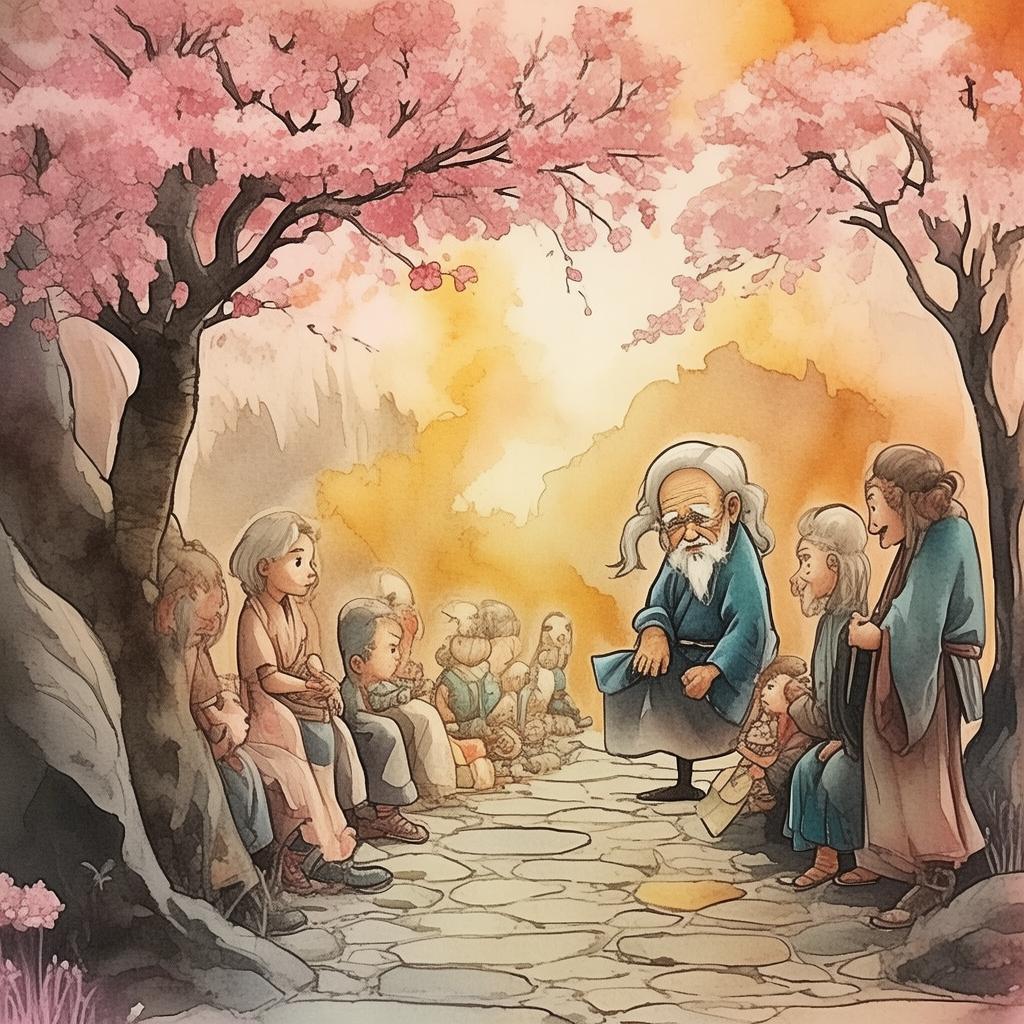
The day of the vote arrived, and the village square was filled with a somber silence. Ming and Ying stood side by side, their faces etched with fear and determination. The elder stood on a pedestal, his voice echoing through the square as he spoke of the purity of the village and the necessity of upholding tradition.
The vote was unanimous. Ming and Ying were to be separated, their love forbidden by the very community that had once celebrated it. As the elder pronounced their sentence, Ming's heart broke. He turned to Ying, his eyes filled with sorrow and love, and began to sing his lullaby once more.
This time, the melody was not one of love but of loss. It was a lament for the beauty that had been stolen from them. The villagers, who had once been moved by Ming's voice, now listened with a heavy heart. They realized that they had been a part of a tragic story, one that would echo through the ages.
As the last note of Ming's lullaby faded into the night, Ying turned to him and whispered, "Remember, the moon will always be there for us." Ming nodded, his eyes reflecting the moon's light. They knew that their love would endure, even if their bodies were separated.
Years passed, and Ming's lullaby became a legend, a tale of forbidden love that was whispered from generation to generation. The Mid-Autumn Festival was no longer just a celebration; it was a time to remember Ming and Ying, and to honor the love that had been lost but never forgotten.
And so, every Mid-Autumn night, the villagers would gather under the full moon, their eyes reflecting the light that had once illuminated the love of Ming and Ying. They would listen to the lullaby, a melody that had become synonymous with the eternal cycle of love and loss, and they would remember the beauty that had once graced their village.
✨ Original Statement ✨
All articles published on this website (including but not limited to text, images, videos, and other content) are original or authorized for reposting and are protected by relevant laws. Without the explicit written permission of this website, no individual or organization may copy, modify, repost, or use the content for commercial purposes.
If you need to quote or cooperate, please contact this site for authorization. We reserve the right to pursue legal responsibility for any unauthorized use.
Hereby declared.
